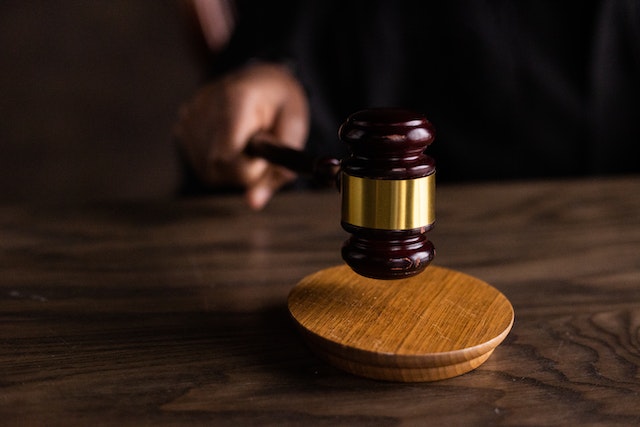
What do Amended Charges Mean | Understanding Amended Charges
The contents of this web page are for informational and educational purposes only, and nothing you read is intended to be legal advice. Please review our disclaimer before taking action based upon anything you read or see.
Every constituted court aims to advance fairness and equity amongst litigants. In doing so, the court considers procedures and concepts that are legitimate and essential for achieving justice. The court’s ability to alter court procedures at any point before judgment is rendered is one of the various instruments it has established. So what do amended charges mean?
The legislation that established courts often dictates their powers and the scope of their duties, which is a sine qua no norm of law. This may be complex for many to understand. Thus, we have made this post to aid you.
A charge or charge sheet may also be modified before the court in which the trial is being held at any point before judgment due to flaws or inaccuracies. Every trial court has the authority to change a charge before ruling. This modification might be made through an addition, removal, edit, or total replacement.
Substitution has the same significance and effect as modification in this situation. However, several factors determine the stage at which a requested adjustment is to be implemented. Come along as we highlight more on this below.
Reasons for Amendment of Charges

Some Reasons for the amendment of charges include:
Inadequate supporting data.
The court may modify the accusation if the proof against the suspect is deemed insufficient. Or, fresh evidence that undercuts the plaintiff’s argument against the defendant may be unearthed. After initially going through the police records, your counsel may be able to speak with the district attorney and prosecutors.
He may also contend that the evidence is inadequate to support filing a specific charge against you in the first place. If indictments are filed despite scant facts, your counsel may take steps to dismiss the case or amend the controls.
Abuses of the Fourth Amendment.
The Fourth Amendment shields people against unauthorized seizures and searches conducted by enforcement agencies, detectives, and the police. Any facts acquired unlawfully may and needs to be eliminated from the trial.
If this turns out that any of the evidence the prosecution used was acquired lawfully and cannot be utilized in court, the trial may change the charge. If the same has transpired, maybe because investigators omit to get a colorable claim to investigate for evidence, a knowledgeable defense counsel can demonstrate it.
Any evidence uncovered without a court order is thus declared unlawful, and the attorney could choose to dismiss or modify the accusation.
Problems with the procedure
Officers and prosecutors must adhere to stringent standards when executing an arrest, booking a defendant, questioning him, or doing other preliminary tasks.
These administrative mistakes can potentially justify a case revision or sentence reduction if a defendant’s rights were breached. Nevertheless, you must engage with a seasoned defense lawyer due to how complex these situations may be.
A lack of resources.
The fact is that public defenders and attorneys often tackle substantially more instances than they can accomplish. Consequently, they could be ordered to concentrate their resources and energy on a limited number of high-priority cases while modifying or dropping less severe accusations. This is more probable if you are booked with a petty offense and have no previous arrests.
Examples of Amended Charges
Some examples of amended charges that Congress passed include:
Search and citation
This includes the people’s right to be free from arbitrary searches and confiscations of their person, home, belongings, and documents. Therefore, they must not be broken.
Furthermore, no warrants may be issued without probable cause shown by oath or affirmation and specifically describes the location to be searched and the people or items to be taken.
Legal rights in felony instances
No one may be tried for a capital offense or another notorious crime without a grand jury’s arraignment or indictment, except in situations involving the armed forces, the navy, or the militia.
No one should be repeatedly placed in danger of losing life or limb for the same offense, nor may anyone be forced to testify against oneself in a criminal proceeding.
The need for a fair trial
A speedy and public trial by an unbiased jury drawn from the State and area where the crime was committed is guaranteed to the accused in all criminal cases. Additionally, the district must have been initially described by law and notified of the allegations’ details. He may also get legal advice to help with his defense.
Process of Amending Charges
The Process of amending charges goes thus:
Inform the prosecutor that you do not intend to file charges.
A victim or important witness may significantly affect the case, even if the prosecutor decides whether to alter the charges. If you state that you don’t want to take the matter to trial, there’s a significant chance that you won’t. The prosecution will be terminated. Minor infractions are particularly true of this.
Domestic abuse is a “no tolerance” violation in most jurisdictions. Thus, even at the victim’s request, prosecutors will not dismiss or modify the accusations.
Check the police report for contradictions.
For a copy of your police report, contact the police department that filed it. Please pay close attention to the portion of the information that details what you told the officers as you carefully read it. You may amend your statement if you find any inaccuracies in the information.
Do not tell lies to get charges reduced or changed. Forgery, perjury, or obstructing the course of justice might all result in your prosecution.
Update your report with new data.
You must provide strong evidence to convince a prosecutor to withdraw or modify the charges. This often manifests as new data, proof, or eyewitnesses. Remember that you cannot contradict your prior assertion while adding new information.
Only consider this if you gave the police false information. Whether you lied intentionally or made a simple error might lead to punishment for an innocent individual. For instance, notify the police if you believe something you own was stolen but was lost.
If your initial remark is true, don’t attempt to retract it entirely. You may be charged with a crime.
Hand in your revisions in person.
Stop by the police precinct to submit a written or verbal revision to the report. Bring picture identification in either scenario so you can show that you are the one who first reported the incident.
You may have to appear at the District or County Attorney’s office in its place if the matter is already scheduled to be heard by a judge.
Await a response from the prosecutor.
Law enforcement may request further details regarding the incident. Changing a police report doesn’t always result in the prosecution dropping or reversing the charges. They can want you to provide a witness statement in court if the matter goes forward. Even if you didn’t intend to file a complaint, you risk being fined or jailed if you don’t appear and comply.
Impact of Amended Charges

When you are detained on suspicion of breaking the law, the arresting law enforcement officer will inform the prosecutor about your case. The attorney will then decide whether criminal charges should be brought against you and if legal action should be taken.
Whether or whether the prosecution has sufficient proof to persuade the court that you are responsible for the crime will need to be decided.
Criminal charges are often altered if the prosecutor thinks there is insufficient evidence to support the charge in court, or the case details are incorrect. When the orders are changed, your case will usually be treated fairly.
Common Defenses to Amended Charges
Some Common defenses to amended charges include:
- Self-Defense.
- Defense of insanity.
- Defense against entrapment.
- Reason for being “under the influence.”
Pros and Cons of Amended Charges
The Pros and cons of amended charges have been highlighted in the table below.
| Pros | Cons |
| Gives the prosecution’s arguments a foundation. | You might not be able to force a defendant to make restitution with amended charges. |
| It backs upcoming judicial actions | It could lead to concerns about fairness and openness. |
| It could lead to the defendant’s innocence. | |
| It cuts down on the number of times courts sometimes squander listening to lengthy debates. | |
| The appropriate amendment provides the prosecution with solid information and the correct direction to move the case forward. |
My Advice
During a judicial proceeding, the option of amended charges is crucial. Additionally, it may be inferred that most Magistrate’s courts retain an accused individual charged with a capital offense without authority or over their authority.
This is not only wrong and against the law, but it also creates a lot of issues for the legal system and the accused. This approach also complicates the execution of justice, particularly for the police who arraign persons accused of capital crimes.
Therefore, it is urged that the Magistrates do not issue any orders after a criminal charge has been brought. A plea for amended charges will be essential if you are a victim.

I’m a driven and accomplished law graduate and post-graduate, passionate about sharing my legal expertise via my blog. I hold a Bachelor’s degree in Law from the University of London (UK) and a Master’s in Law from the University of Derby (UK). Both gave me the foundational knowledge and skills to excel in my chosen career path.
Throughout my academic journey, I have gained extensive knowledge in various fields of Law, including Corporate and Business Law in the USA, Criminal Law, International Law, US Copyright law, and most importantly, American Constitutional law.


Comments are closed.